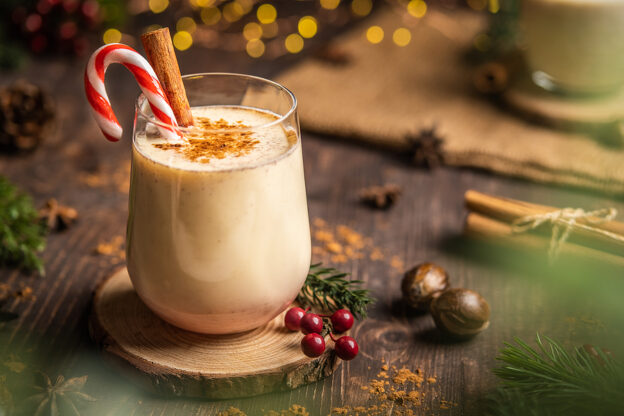By David Blyweiss, M.D., Advanced Natural Wellness
December 24, 2021
The holiday season is here, and over the next few weeks you’ll be invited to any number of gatherings. And chances are good that alcohol will be flowing pretty freely.
Even if you don’t normally indulge, you’ll probably find yourself with a drink in your hand on more than one occasion.
The fact is, more people overindulge in alcoholic beverages during the winter holidays than at any other time of the year. And it’s not hard to find yourself more than a little “tipsy” before you realize you’ve sipped one drink too many.
That’s because, depending on your weight and liver size and health, your body can only metabolize so much alcohol each hour. But when it catches up with you, it can hit like a sledgehammer.
The next morning is even worse. The pounding head, sensitivity light, upset stomach and other lingering effects make you wish you’d avoided the festivities altogether.
Open your arteries, improve blood flow for a new health miracle...
Did you know your circulatory system has over 60,000 miles of arteries, veins and other blood vessels, if stretched end to end?
But as you age, your blood vessels undergo changes, which may cause them to stiffen, thicken and get clogged.
GOOD NEWS! Doctors have now identified a “Miracle Molecule” inside your arteries that helps OPEN your arteries and IMPROVE blood flow.
It’s what Dr. Valentin Fuster calls it, "One of the most important discoveries in the history of cardiovascular medicine."To you, that means...
- Healthy blood pressure
- Sharper mind and memory
- Skyrocketing energy and muscular strength
- Increased pleasure and passion in the bedroom
- Improved circulation to every cell and organ in your body
Go here to discover a new natural way to significantly boost the levels of this miracle molecule in YOUR body NOW!
Well, there’s no need for that. The holidays are truly a time to celebrate. So let’s talk about some safe alcohol practices that can keep you out of harms way during this festive time of year.
Is there any such thing as “Healthy” Liquor?
My patients often ask me which type of alcohol is the “healthiest”. And they’re always disappointed in my answer.
There is no “healthy” alcohol. It’s both a tonic and a poison. A drink a day might offer a few health benefits. But more than that can quickly unravel your well-being.
However, some types of alcohol may be slightly “healthier” than others.
Wine is widely recognized for its heart-healthy benefits. This is attributed to a potent antioxidant called resveratrol that is found in red wine. In addition to safeguarding your heart, this super-nutrient protects your mitochondria, reduces inflammation and boosts metabolism. Unfortunately, it would take multiple bottles of wine to equal a resveratrol tablet.
Clear liquors are likely a healthier alternative than those that are dark. This is because darker alcohols like brandy, bourbon, whiskey and even beer contain high concentrations of something called congeners.
The World's Quickest Solution for Ending Prostate and Urinary Misery
This has recently been revealed to be one of the only real breakthroughs in prostate health.
The seeds of a strange fruit (sometimes called "Chinese Apples") hold powerful phytonutrients that are a revolution in prostate health.
In fact, UCLA and Veterans Administration research have now proved this to be true.
Not only that, but it may be the worlds quickest solution for ending prostate misery.
Simply stated, these phytonutrients represent a huge step beyond beta sitosterol, saw palmetto, and other phytosterols alone.
Simply click HERE if you want to have fast prostate relief...restful, uninterrupted sleep...no more constant "urges to go"...enhanced virility...and optimal prostate support for life.
These are toxic byproducts (methanol, histamines, acetone, etc.) produced during the fermentation process. When you drink liquor with a high congener content, you’re more likely to experience severe hangover symptoms.
Clear spirits such as gin, rum and vodka can cause also cause a hangover if you drink too much of them. But it will probably be less brutal.
In many cases, the mixes are just as bad for you as the alcohol itself.. They’re loaded with syrupy sugars, artificial flavors, color additives and other decidedly unhealthy ingredients.
At the same time, it’s extremely easy to over consume alcoholic drinks that are mixed with sweet-tasting soft drinks, juices and pre-made mixes. After all, if it tastes like fruit punch, you’ll probably gulp it down like fruit punch.
Your best bet?
When consumed in moderation, red wine is a relatively safe choice. Light beers can also be pretty harmless since they have such a low alcohol content.
However, wine and beer are both acquired tastes. Not everyone likes them.
If that’s the case, stick with a clear alcohol. But don’t do shots. And don’t blend them with sugary mixes. Instead, mix a shot with a tall glass of sparkling water. Then add a slice of lime, orange, kiwi or watermelon for flavor.
3 Tips to Avoid getting Drunk during the Holidays
In addition to choosing a drink that’s not horribly bad for you, it’s very likely you don’t want to accidentally find yourself in a drunken state. And there are measures you can take to avoid this.
Never drink on an empty stomach. Filling your stomach with healthy proteins, fats and plant-based carbohydrates slows down the absorption process. This helps to buffer the rapid effect of alcohol on your system. So always eat a good meal prior to heading out to a holiday party.
Stay hydrated. Excess alcohol consumption dehydrates the body. This makes it a good idea to follow each alcoholic drink with at least 8 ounces of water. Sixteen ounces is even better. It will give you more time to metabolize the liquor you’ve already ingested and get it out of your system.
Pace yourself. Tasty beverages with cute holiday names like Rudolph’s Tipsy Spritzer and Santa Shot Cocktails are easy to slug down as quickly as a bottle of Gatorade. The difference? These seasonal drinks aren’t just loaded with sugar and artificial ingredients. They also have exceptionally high alcohol content. Slow down! but remember,
“Drink because you are happy, but never because you are miserable.” — G.K. Chesterton
SOURCES:
Alcohol Alert: Alcohol Metabolism. National Institute on Alcohol Abuse and Alcoholism. No. 35, PH 371.
Smoliga JM, et al. Resveratrol and health–a comprehensive review of human clinical trials. Mol Nutr Food Res. 2011 Aug;55(8):1129-41.
Verster JC, et al. The Alcohol Hangover Research Group Consensus Statement on Best Practice in Alcohol Hangover Research. Curr Drug Abuse Rev. 2010 Jun; 3(2): 116–126.






